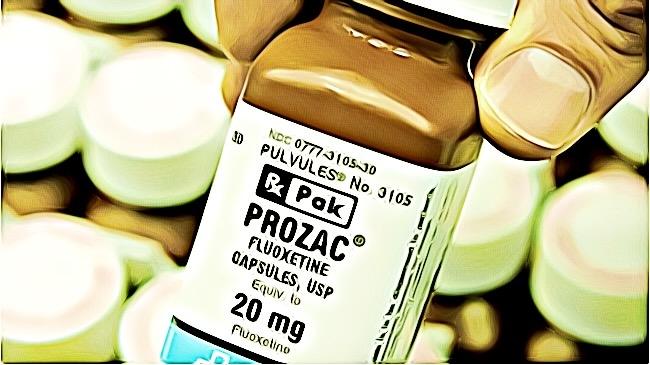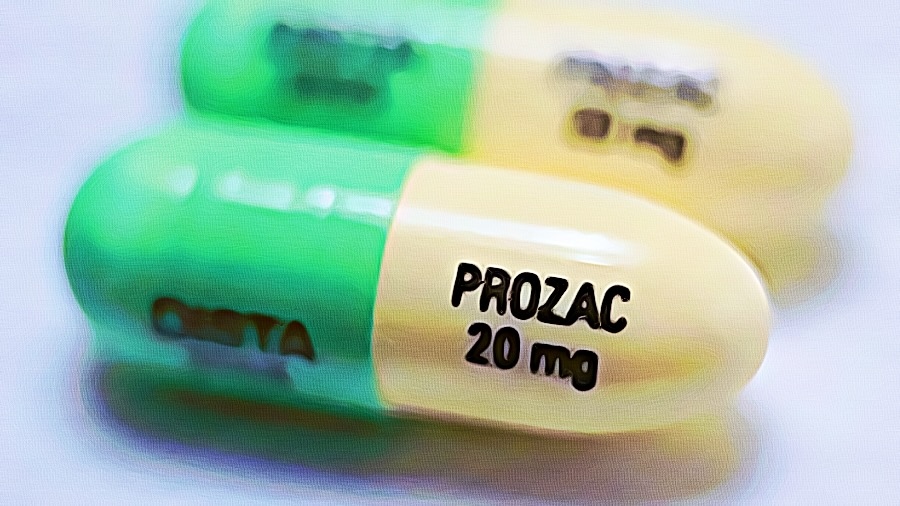Dealing with mental health conditions such as depression and anxiety is never easy because you never know if it will get better or worse. For this reason, seeking professional help is recommended, and you might get prescribed antidepressants to help you manage your condition. Many psychiatrists recommend various medications depending on the severity of the issue, such as Prozac.
Prozac is the brand name for the drug Fluoxetine, a type of antidepressant known as a selective serotonin reuptake inhibitor (SSRI). SSRIs increase serotonin levels, a neurotransmitter that helps regulate mood, in the brain. The FDA approves Prozac to treat major depressive disorders, but a concern with it is addiction. Many antidepressants are often addictive, so it gets lumped into the same category. Nobody knows whether Prozac is addictive, so we’ll discuss the details in this article.
Is Prozac Addictive?
Prozac is not considered addictive because it does not produce the same effects as other drugs that are considered addictive. For example, Prozac does not create a “high” or intense feeling of euphoria, which is often associated with addiction. Additionally, Prozac does not lead to compulsive drug-seeking behavior, another common symptom of addiction.
However, it can cause some side effects that may be considered addictive. These include anxiety, insomnia, and sexual dysfunction. Some people may rely on Prozac to help them cope with these side effects, but this is not the same as addiction. Addiction is a mental disorder characterized by a compulsive drug-seeking behavior, even when the drug is no longer needed.
What Is Prozac Used For?
As an antidepressant, Fluoxetine is used to treat major depressive disorders, bulimia nervosa (an eating disorder), obsessive-compulsive disorder, panic disorder, and premenstrual dysphoric disorder (PMDD).
Fluoxetine is sometimes used with another medication called olanzapine (Zyprexa) to treat depression caused by bipolar disorder (manic depression). This combination is also used to treat depression after at least two other medications have been tried without successful treatment of symptoms.
The Benefits of Prozac
Aside from managing mental health conditions, Prozac also offers benefits such as:
Better Sleep
Prozac is known to help with sleep problems, such as insomnia. It has been shown to improve sleep quality and reduce the number of awakenings during the night.
Reduce Mood Swings
Prozac is also known to help in reducing mood swings. It reduces the duration and intensity of mood swings by stabilizing the body’s chemistry.
Stress Management
Prozac is also known to help with stress management. It helps to reduce the level of stress hormones in the body, thus reducing stress and anxiety.
Improves Mood
Prozac also helps to improve mood by increasing the levels of serotonin in the brain. Serotonin is a neurotransmitter that is responsible for regulating mood.
Increases Energy Levels
Prozac also helps to increase energy levels. It helps to increase the levels of norepinephrine and dopamine in the brain, which regulates energy levels.
Weight Loss
Prozac also helps to promote weight loss. It helps to increase leptin levels in the body, a hormone that regulates hunger.

What Makes Prozac Addictive?
Prozac is not considered addictive. However, it can lead to physical and psychological dependence when the body becomes used to the drug and needs it to function normally. Consequently, Prozac can lead to withdrawal when the body becomes accustomed to the medicine and stops taking it. Withdrawal symptoms can include anxiety, insomnia, nausea, and headaches.
Furthermore, there are also signs of Prozac addiction you should look for, such as:
Taking Prozac with Other Drugs or Alcohol
Prozac is often prescribed to patients who have an addiction to other substances. Alcohol and other drugs can interact with Prozac and cause serious side effects. Therefore, it’s not recommended to take Prozac with other substances.
Faking Symptoms to Get a Prozac Prescription
People addicted to Prozac may fake symptoms to get a prescription from their doctor. For example, they may claim to be feeling depressed or anxious to get Prozac, which is the only way to fuel their addiction.
Taking More Prozac than Prescribed
People addicted to Prozac may take more than their prescribed dosage. They may do this by taking multiple pills at once or taking the drug more frequently than prescribed. Taking more Prozac than prescribed can lead to serious side effects, such as seizures and coma.
Taking Prozac to Get High
Prozac is not typically abused for its psychoactive effects, but some people take it to get high. Prozac can cause euphoria, increased energy, and changes in perception when used in this way. Taking Prozac to get high can be dangerous and lead to serious side effects, including overdose. If you or someone you know is abusing Prozac, you must seek professional help immediately.
Signs and Symptoms of Prozac Abuse
Prozac abuse often leads to physical and psychological side effects. Some of the most common side effects of Prozac abuse include:
- Agitation
- Anxiety
- Confusion
- Dizziness
- Drowsiness
- Excessive sweating
- Fatigue
- Headaches
- Irritability
- Loss of appetite
- Nausea
- Restlessness
- Sexual performance problems
- Sleepiness
It’s also worth noting that Prozac has adverse effects on pregnant women. This is because Prozac and other SSRIs can cause severe or life-threatening lung problems or other complications in a newborn if the mother takes the medication late in pregnancy (usually during the third trimester). As for the mother could lead to pre-term delivery, which affects the baby’s overall health.
Prozac Withdrawal Timeline
The withdrawal timeline for Prozac is different for each person. It also depends on how long you have been taking the drug, how high your dose is, and whether you have experienced withdrawal before.
Prozac withdrawal symptoms typically start within 24-48 hours of your last dose. Withdrawal symptoms are usually mild to moderate in the first few days and peak within a week. Symptoms can last for a few weeks to a few months.
Prozac withdrawal symptoms can be severe if you have taken the drug for a long time, have a high dose, or have a history of withdrawal symptoms. You also can’t stop abruptly because it will worsen the problem.
Prozac Withdrawal Treatment
Prozac withdrawal symptoms are often mild and do not last for long. However, in some cases, they can be severe and last for a long time.
You should see a doctor if you experience severe withdrawal symptoms after stopping Prozac. Prozac withdrawal symptoms can be treated with other antidepressants and anti-anxiety medications, but this is only at the discretion of your doctor. Some of these medications include:
- Anticholinergics
- Antihistamines
- Benzodiazepines
- Beta-blockers
- Calcium channel blockers
- Tricyclic
Preventing Prozac Addiction
The best way to avoid Prozac addiction is to avoid taking the drug in the first place. If you must take Prozac, ensure you’re only taking the prescribed amount. You should never take more than you’re supposed to because it leads to addiction.
You can also take it upon yourself to learn as much as you can about the drug. This will help you understand the risks and side effects and take it as prescribed.
Seeking Professional Help
Treating Prozac withdrawal is one thing, but long-term treatment is another. If you’re considering quitting Prozac, you will need professional help. After all, it’s not like you can just stop taking the drug and then go about your life. You need a plan in place, and professional help is the best way to get that plan.
Some doctors will work with you to help you taper off Prozac. They will help you to slowly lower your dose until you’re no longer taking the drug. This is the best way to quit Prozac, as it will help minimize the withdrawal symptoms you experience.
Other doctors may prescribe a different antidepressant to help you through withdrawal. This is called an “antidepressant holiday.” The doctor will prescribe you a different antidepressant, and you will take that for a few weeks. Once you’re feeling better, you can then stop taking the antidepressant.
Some people may also need to be hospitalized during Prozac withdrawal. This is usually only necessary if the person has severe withdrawal symptoms that risk their health.
Conclusion
Prozac addiction is real and should not be taken lightly. If you or someone you know is addicted to Prozac, getting help as soon as possible is essential. All that matters is that you or your loved one receives the support and treatment you need to overcome this addiction.

